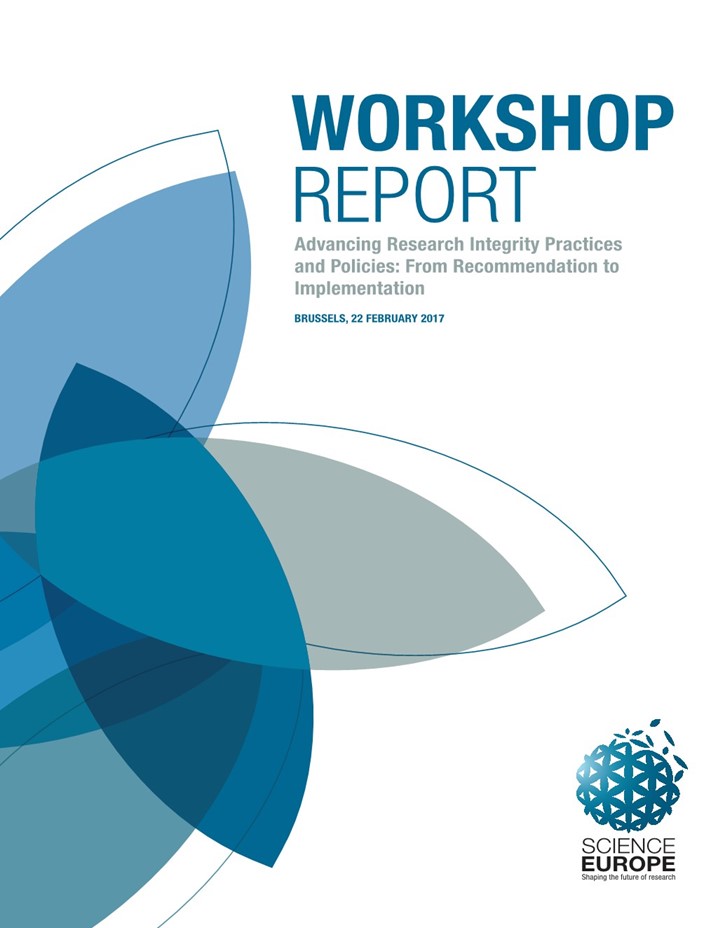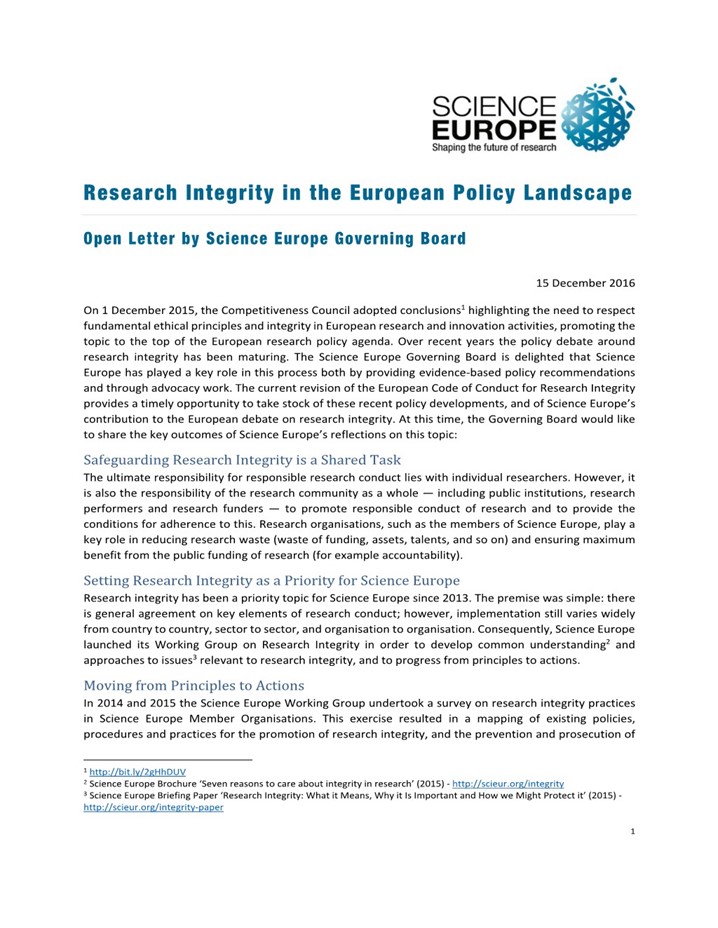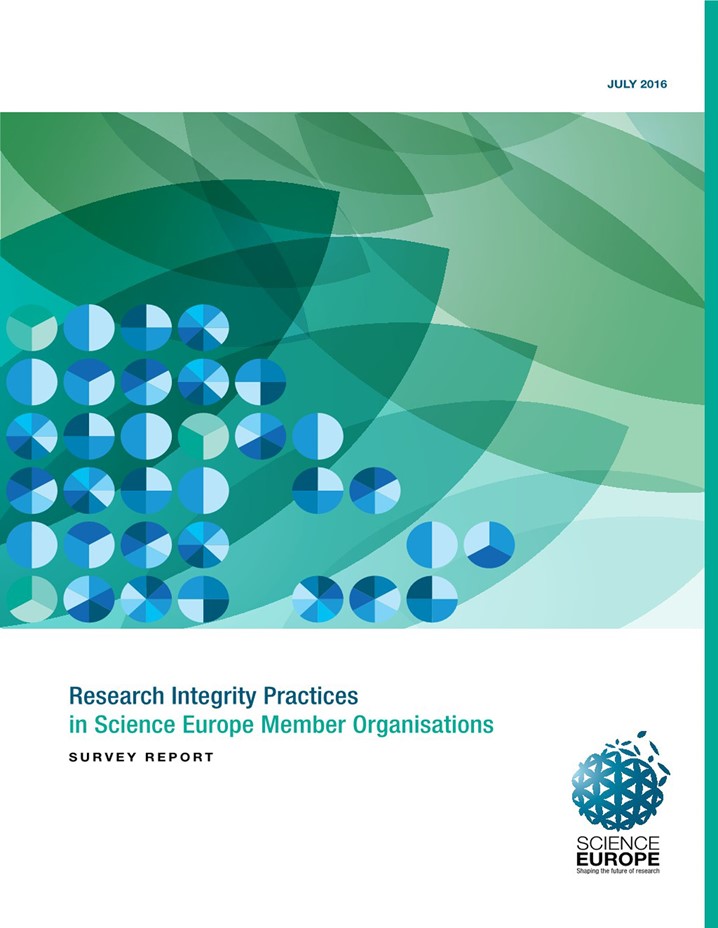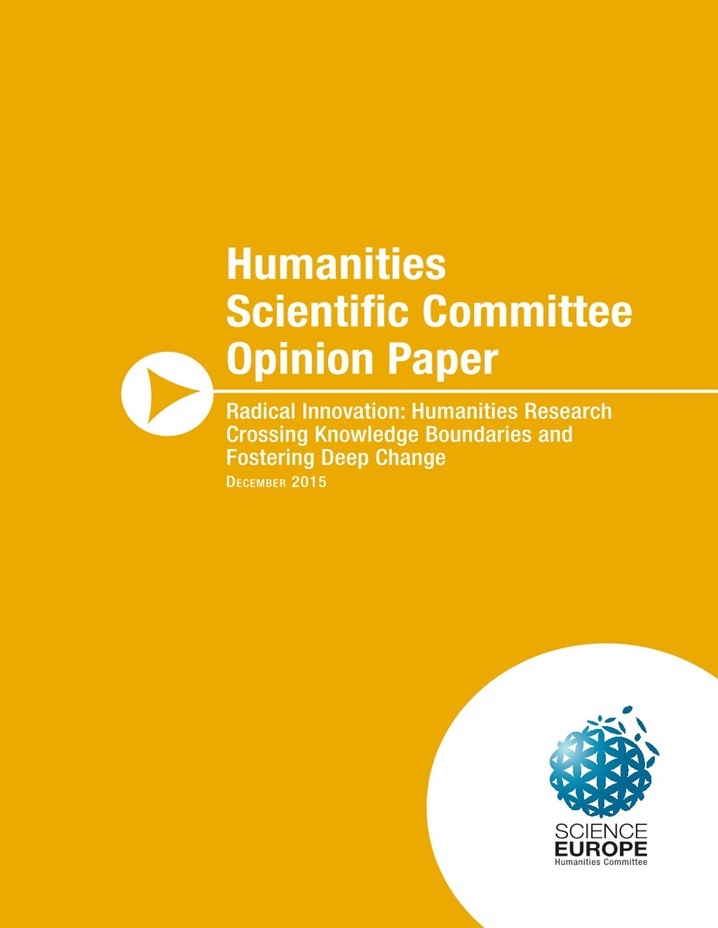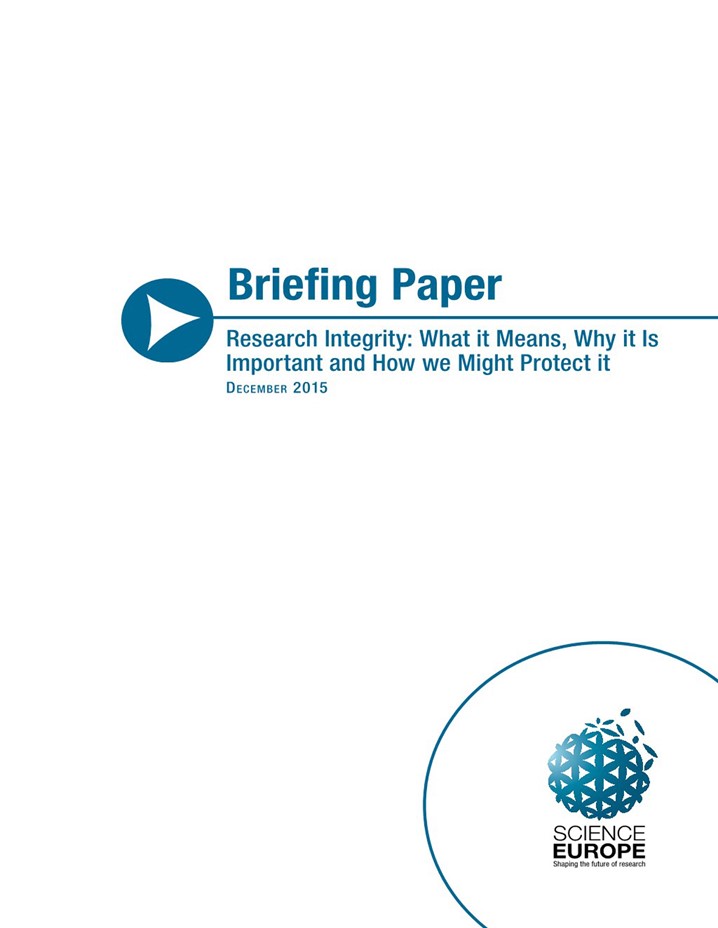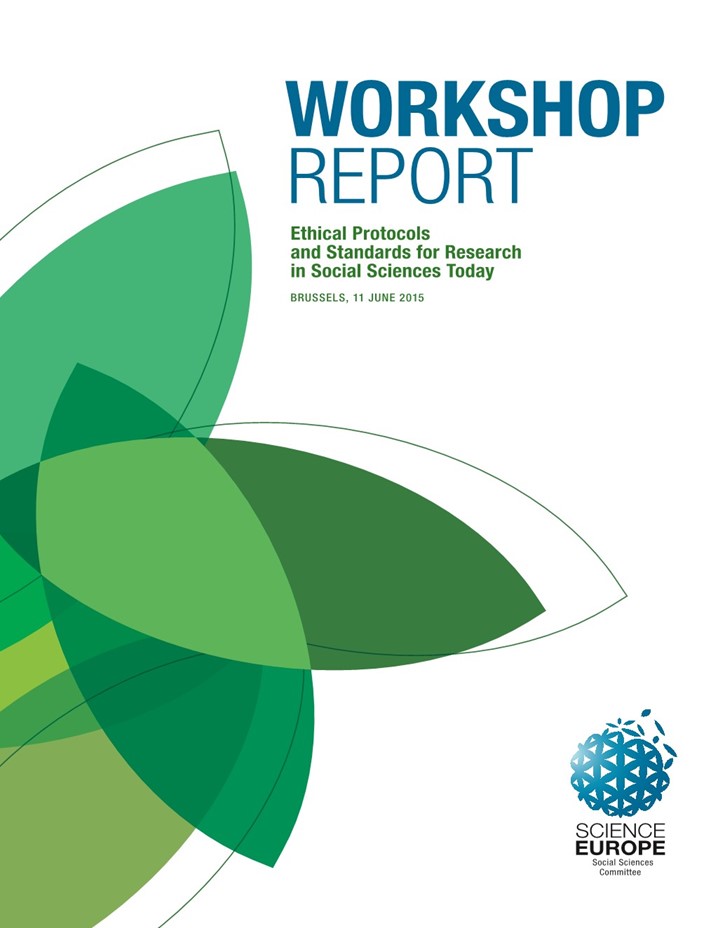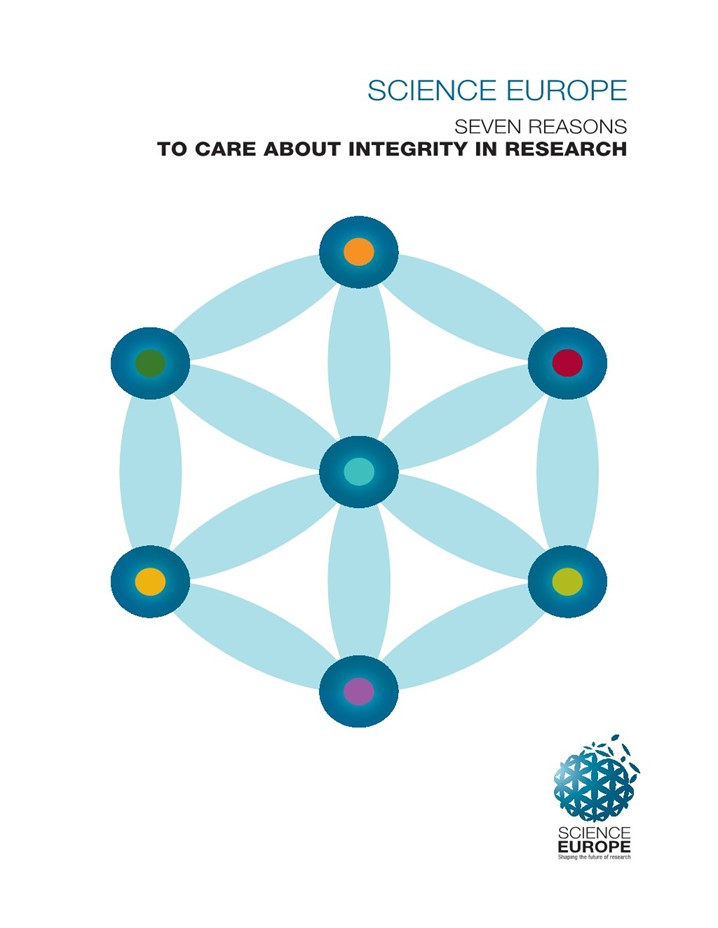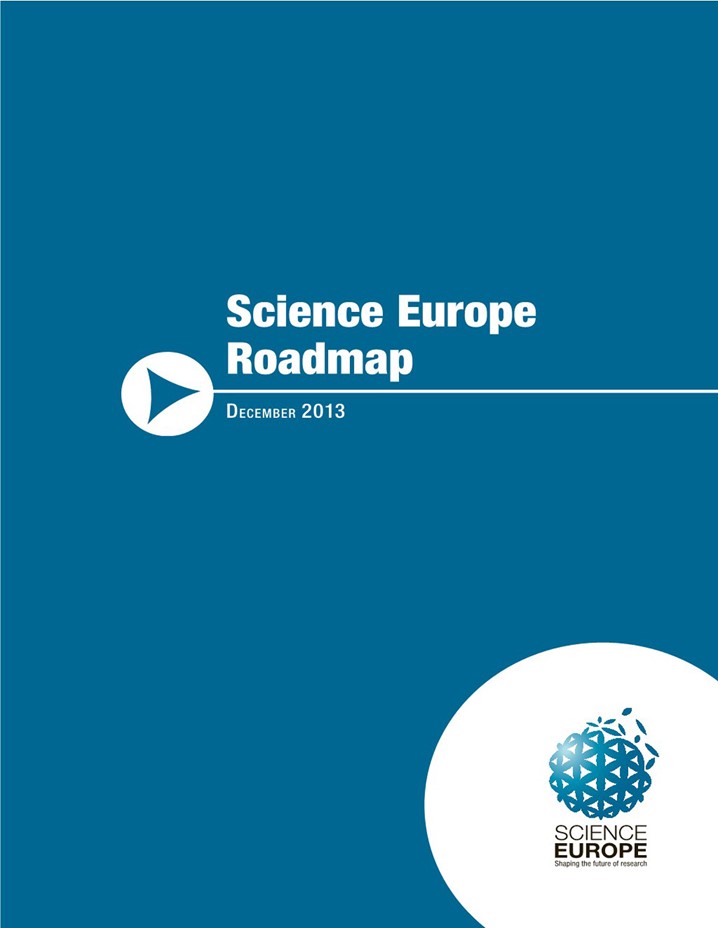Member-only content is available on this page. Please log in to view this content.

Our resources
Discover Science Europe’s comprehensive library of resources, including the most recent publications, briefings, and position statements.
33 resource(s) found
Advancing Research Integrity Practices and Policies: From Recommendation to Implementation
This workshop aimed to advance implementation of the recommendations published in Science Europe’s Survey Report ‘Research Integrity Practices in Science Europe Member Organisations.’ The workshop explored the challenges in taking forward certain recommendations through the discussion of case studies presented by organisations that have already tackled some of the more difficult issues.
Open Letter from the Governing Board of Science Europe on Research Integrity in the European Policy Landscape
Safeguarding research integrity is a shared task. This is the core message of the Science Europe Governing Board in its Open Letter which is a contribution to the revision of the European Code of Conduct for Research Integrity. It provides the opportunity to take stock of the recent policy developments and of Science Europe’s contribution to the European debate on research integrity.
Research Integrity Practices in Science Europe Member Organisations
Research integrity is at the core of the research endeavour. It is the basis for researchers’ trust in each other and in the research record and, equally importantly, society’s trust in research. This report maps existing policies, procedures, and practices for promoting research integrity and builds upon this to make a number of key recommendations for improving research integrity including processes and policies, awareness raising, training, and collaboration.
Radical Innovation: Humanities Research Crossing Knowledge Boundaries and Fostering Deep Change
This Opinion Paper shows how arts and humanities research is at the heart of innovation processes. In this paper the Science Europe Scientific Committee for the Humanities advocates the need for a wider and deeper understanding of the concept of innovation, in order to better prepare Europe to tackle global challenges. The Committee points out ways to achieve stronger European leadership through the promotion of radical innovation by highlighting the contribution of arts and humanities research.
Briefing Paper on Research Integrity: What it Means, Why it Is Important and How we Might Protect it
This briefing paper looks at developments in efforts to address issues of research integrity. It explores the available data on the frequency of misconduct, why it is thought that researchers would commit misconduct in the first place, how national and international organisations have approached the promotion of research integrity, and the manner in which allegations of misconduct are handled.
Workshop on Ethical Protocols and Standards for Research in Social Sciences Today
Research in the social sciences regularly faces its own ethical issues, yet it lacks an equivalent codification of approaches that are tailored to its disciplines, as well as sufficient infrastructures at the institutional level to assess proposals. The importance and value of ethics in social sciences research are not yet universally embraced, creating divergence in approaches and resourcing between countries, institutions and disciplines. Furthermore, social sciences research is undergoing a period of rapid change. There is increasing participation in multidisciplinary projects, while changes in technology are creating new challenges for social sciences researchers, which need to be addressed. The social sciences urgently need ethical protocols that can function effectively across disciplines and can adapt to advances in research methodologies and strategies.
Seven Reasons to Care about Integrity in Research
Research integrity is intrinsic to research activity and excellence. It is at the core of research itself. It is a basis for researchers to trust each other as well as the research record, and, equally importantly, it is the basis of society’s trust in research evidence and expertise. This brochure sets out seven key reasons why research organisations should be concerned about promoting research integrity amongst their research communities.
Science Europe Roadmap
The Roadmap, approved by the Science Europe General Assembly in November 2013, is Science Europe’s action plan to contribute to the elements of a successful research system. It acts as a framework for voluntary collective activity, providing a long-term strategy for the association. The ‘Priority Action Areas’ are those in which Science Europe members believe that there is a potential to achieve tangible and substantive progress, and where they can add real value by working together.

